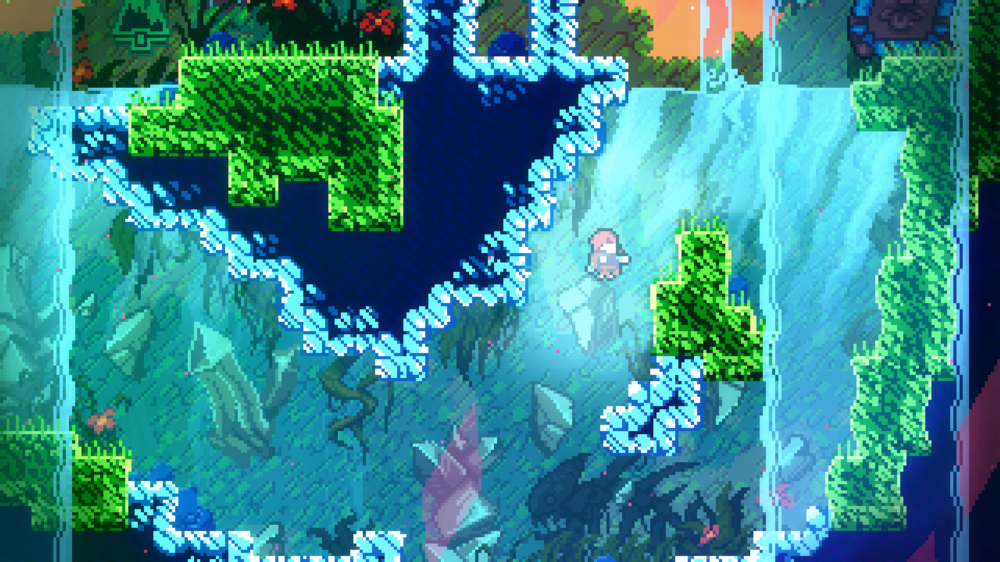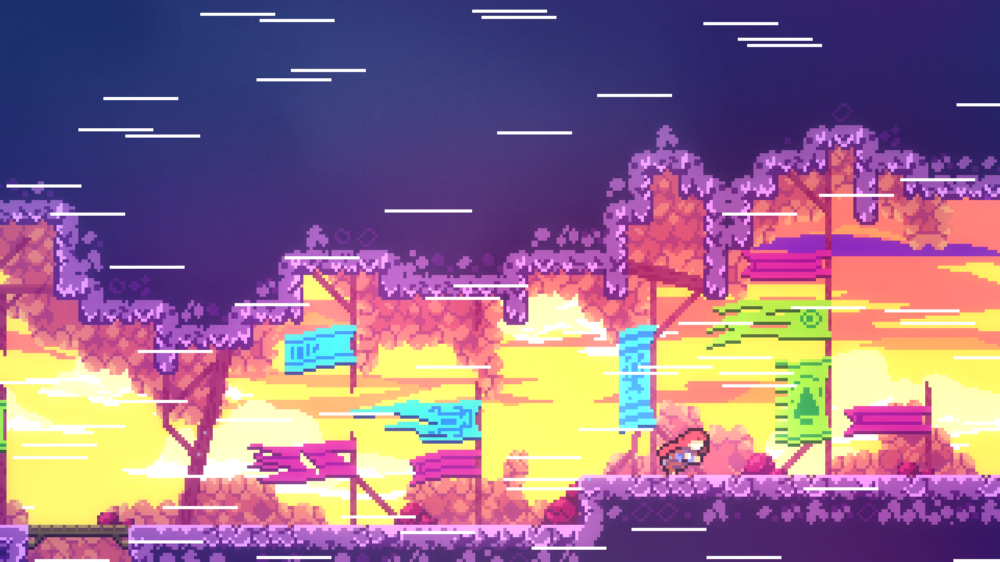This piece contains spoilers for Celeste’s ending!
I am a quitter.
If you’ve known me for more than five minutes, this probably doesn’t come as a surprise. I’ve quit personal projects because I didn’t feel they were good enough. I’ve quit jobs because I thought I wasn’t good enough for them. I’ve quit classes I’ve found too difficult. I quit working at RPGFan, a place I’m fond of, because I was worried the people there didn’t like me. I just dropped them all.
It feels good to quit things. To know that I was right, that something wasn’t worth doing, or confirming that I wasn’t good enough to do it. Quitting comes naturally to me. It soothes the part of me that wants me to be safe. The part that stops me from getting hurt, to stay cozy in a bubble of comfort and familiarity.
The characters in Celeste know how I feel. Madeline, the game’s protagonist, wants to climb the titular Celeste Mountain to prove something to herself, in spite of herself. It is revealed early on in the game that Madeline has depression, anxiety, and experiences panic attacks. She wants to accomplish something, anything, and so heads to the mountain to reach its summit.
It isn’t easy. Celeste is a game that demands pixel-perfect platforming precision. You will die. A lot. You’ll die on nearly every single screen at least once, in some spots 30 or 40 or 50 times, depending on your skill level. Every death will be your fault. Celeste controls perfectly. Your jump and air dash are the only tools at your disposal, and you will be tested and pushed to the limit to use both on every screen.

The way I describe Celeste’s mechanics make them sound antagonistic, a Super Meat Boy-esque escapade where every death causes you to inch one step closer to throwing your controller across the room. But that’s not the case. Celeste challenges you, but the way it does so is encouraging as opposed to aggressive. Loading screens send you post cards with uplifting messages: “Every loss means you’re learning!” There’s a forgiving Assist Mode that allows you to progress through the game even if you’re not fast or technical or have a strong grasp on the controller. And the music is soothing, energetic without being overbearing.
Celeste is a warm cup of hot chocolate on a winter day. It is a game that allows you to take each screen one step at a time, and encourages you to keep trying. And because of that, I didn’t want to quit, even at the game’s most difficult.

The way Celeste blends the message of its narrative with the mechanics at play is wonderful. Madeline’s anxiety and depression are made manifest in her “Other Half,” a dark-palleted version of the girl that serves as her antagonist for the majority of the game. Madeline’s Other Half taunts her, goads her into focusing on her failures, and — most importantly — tries to convince her to quit climbing Celeste Mountain.

As the story progresses, Madeline starts by wishing that Other Half would go away. But she eventually attempts to understand the motives and reasoning of her Other Half. She realizes that this voice in her head is one that’s trying to protect her from the sting of failure. Why hurt yourself when you can just…quit? The Other Half is trying to help in the only way it knows how, and this clash of feelings nearly throws Madeline off the mountain.
Near the game’s end, Madeline reconciles with her Other Half, and a heartwarming conversation ensues about the fear of failure, and allowing yourself to work past that risk to achieve something great. And it is here where Celeste allows its mechanics to weave itself into its narrative in an uplifting way — literally. Madeline’s acceptance of her Other Half allows her to air dash twice, and partner with the dark part of herself to launch into the air. The challenges ramp up even more as you make a final dash towards the summit, but at this point, you feel as if nothing can stop you. You’re going to get to the top of that mountain.

I didn’t want to quit Celeste. And because of Celeste, I don’t want to quit, period. It is a beautiful game that plays to its strengths in order to remind you that you are better than you think you are, and that you can accomplish more than you think you can. That anxious, scared voice inside of your head should be listened to, yes — but it shouldn’t stop you either. I can put Celeste in a small pantheon of games that didn’t just entertain me, but also gave me the encouragement to improve myself and become a more confident person. It is powerful, and you should play it.
Just don’t quit!